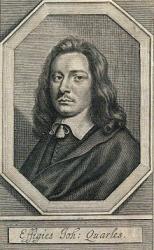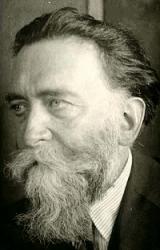Planning worship?
Check out our sister site, ZeteoSearch.org,
for 20+ additional resources related to your search.
- |
User Links
Person Results
Emma F. R. Campbell
1830 - 1919 Person Name: Etta Campbell Author of "¿Qué significa tal rumor?" in Culto Cristiano Campbell, Emma F. R. (1830-1919). Her first name is sometimes given as "Etta." She was a school teacher in Morristown, New Jersey. She published a few novels and an anthology, The Hymn "Jesus of Nazareth passeth by" and Its History, and Other Verses (New York: M. E. Munson, 1909).
Leonard Ellinwood, DNAH Archives
==========================
Campbell, Etta, sometime a teacher in Morristown, New Jersey, is the author of:— 1. Come, ye children, sweetly sing. Jesus the Children's Friend. Appeared in E. P. Hammond's Praises of Jesus, 1864; his New Praises of Jesus, 1869; and in other collections, including several in Great Britain. 2. What means this eager, anxious throng. Jesus passes by. Written during a religious revival in Newark, U.S., 1863, and published in Song Victories. It is found in several collections, and was rendered exceedingly popular in Great Britain by Mr. Sankey in his Evangelical tour with Mr. Moody, 1874-6. --John Julian, Dictionary of Hymnology (1907)
Emma F. R. Campbell
James Merrick
1720 - 1769 Person Name: James Merrick, 1720-1769 Author of "Shepherd Of Israel, Bow Thine Ear" in The Cyber Hymnal Merrick, James , M.A., was born in 1720, and educated at Oxford, where he became a Fellow of Trinity College. He entered Holy Orders, but his health would not admit of parish work. He died at Reading, 1769. His publications include:—
(1) Messiah, a Divine Essay. Humbly dedicated to the Reverend the Vice-Chancellor of the University of Oxford and the Visitors of the Free School in Reading. By James Merrick, Ætat. 14, Senior Scholar of the School at their last Terminal Visitation, the 7th of October, 1734. Reading. (2) The Destruction of Troy. Translated from the Greek of Tryphiodorus into English Verse, with Notes, &c. 1742. (3) Poems on Sacred Subjects. Oxford . 1763. (4) The Psalms of David Translated or Paraphrased in English Verse. By James Merrick, M.A., late Fellow of Trinity College, Oxford. Reading. J. Carnan and Co. 1765. 2nd ed. 1766. A few only of these paraphrases were divided into stanzas. In 1797 the Rev. W. D. Tattersall pulished the work "Divided into stanzas for Parochial Use, and paraphrased in such language as will be intelligible to every capacity . . . with a suitable Collect to each Psalm from the Works of Archbishop Parker."
Merrick's paraphrases, although weak and verbose, were in extensive use in the early part of the present century, both in the Church of England and with Nonconformists. They have, however, fallen very much into disuse. Those in modern hymn-books, mainly in the form of centos, include:—
1. Blest Instructor, from Thy ways. Ps. xix.
2. Descend, O Lord! from heaven descend. Ps. cxliv. (In time of National Peril.)
3. Far as creation's bounds extend. Ps. cxlv.
4. God of my strength, the wise, the just. Ps. xxxi.
5. He who with generous pity glows. Ps. xli.
6. How pleasant, Lord.Thy dwellings are. Ps. lxxxiv.
7. Lift up your voice and thankful sing. Ps. cxxxvi.
8. Lo, my Shepherd's hand divine. Ps. xxiii.
9. Lord, my Strength, to Thee I pray. Ps. xxviii.
10. My heart its noblest theme has found. Ps.xlv.
11. O let me, [gracious] heavenly Lord extend. Ps. xxxix.
12. O turn, great Ruler of the skies. Ps. li.
13. Praise, O praise the Name divine. Ps. cl.
14. Sing, ye sons of [men] might, O sing. Ps. xxix.
15. Teach me, O teach me, Lord, Thy way. Ps. cxix.
16. The festal morn, my [O] God, is come. Ps. cxxii, (Sunday Morning.)
17. The morn and eve Thy praise resound. Ps. lxv. (Harvest.)
18. To Thy pastures, fair and large. Ps. xxiii.
From his Poems on Sacred Subjects, 1763, the following centos have also come into common use: --
19. Author of good, to Thee we turn. Resignation.
20. Eternal God, we look to Thee. Resignation.
21. 'Tis enough, the hour is come. Nunc Dimittis.
John Julian, Dictionary of Hymnology (1907)
James Merrick
John Quarles

1624 - 1665 Author of "Fountain of light and living breath" in Services for Congregational Worship. The New Hymn and Tune Book Quarles, John, son of Francis Quarles, was born in Essex in 1624, and was educated at Exeter College, Oxford. He bore arms within the garrison at Oxford on behalf of Charles I. and subsequently (it is said) he was raised to the rank of captain in the King's service. On the downfall of the King, Quarles retired to London, and devoted himself to literature for a livelihood. He died there during the great Plague, 1665. He published several works including (1) Jeremiah's Lamentations Paraphrased, with Divine Meditations, 1648; and (2) Divine Meditations upon Several Subjects whereunto is annexed God's Love to Man’s Unworthiness, with several Divine Ejaculations. London, 1655 (Wood's Athenae Oxon.). From the Ejaculation, Mr. Darling adapted two hymns for his Hymns for the Church of England. In the 1889 ed. these are:— “O King of kings, before Whose Throne" (Holy Trinity); and "O Thou Who sitt'st in heaven and seest" (Visitation of Sick).
--John Julian, Dictionary of Hymnology (1907)
John Quarles
C. H. Bright
1850 - 1952 Author of "¡Eternidad! ¡Qué grande eres!" in Himnario provisional con los cánticos
C. H. Bright
C. F. Richardson
1851 - 1913 Person Name: Charles F. Richardson, 1851- Author of "If suddenly upon the street" in Songs for the Chapel Richardson, Charles Francis, born at Hallowell, Me., May 29, 1851; graduated at Dartmouth 1871; from 1882 Professor of Anglo-Saxon and English Literature at Dartmouth; published The Cross, 1879, from which "If suddenly upon the street" (Sacrifice for Christ) in Horder's Worship Song, 1905, and others, is taken.
--John Julian, Dictionary of Hymnology, New Supplement (1907)
C. F. Richardson
Anīs Maqdisī
1885 - 1977 Person Name: انيس المقدسي Author of "روح الحياة المرتجى" in كتاب الترانيم الروحية للكنائس الإنجيلية انيس الخوري المقدسي
ولد في طرابلس في لبنان.
كان قد تعلم في المدارس التبشيرية،
وعمل أستاذًا للغةِ العربية في الجامعة الأمريكية،
وكان عضو المجمع العلمي العربي في دمشق.
وكذلك عضو مجمع اللغة العربية في القاهرة منذ سنة 1961
Anis Khuri Makdisi
Anīs Maqdisī
Gordon Bottomley

1874 - 1948 Author of "O Bethlem Town Tonight Is Cold" in The Cyber Hymnal Gordon Bottomley (1874–1948) was an English poet, known particularly for his verse dramas. He was partly disabled by tubercular illness. His main influences were the later Victorian Romantic poets, the Pre-Raphaelites and William Morris.
See also in:
Wikipedia
Gordon Bottomley


 My Starred Hymns
My Starred Hymns

